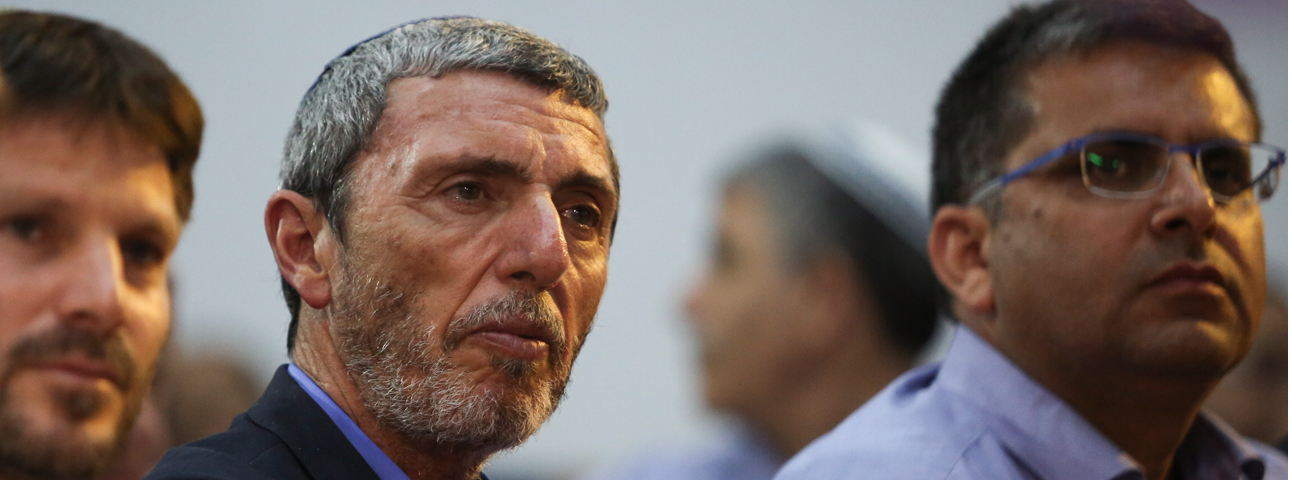The Burden of Proof
Calls for applying "Torah Law"in Israel lay bare the the much larger problem posed by the substantial clash of the world of Halacha with two fundamental principles of the modern liberal world: individual freedom and equal rights.

Flash 90
Just a few weeks ago, the religious Zionist community in Israel was deeply insulted: Bezalel Smotrich, a member of Knesset (at the time) dared to publicly express his hope for “Torah law” to be applied in Israel, and was immediately met with furious and fearful reactions. “What is there to be afraid of?” many rabbis exclaimed in defense. “Do you really think that under Torah law we’ll start stoning those who desecrate Shabbat or members of the LGBTQ community?”
Well, here is a list of events that have taken place in the weeks since this uproar: A prominent rabbi (Shlomo Aviner) ruled that women should not be included in the electoral lists of religious parties, and should certainly not be at the helm of such parties. Another prominent rabbi (Tzvi Thau) has chosen to ignore the plight of the right wing and the concern that it may not reach the electoral threshold, and is threatening to form his own tiny upstart party, because even the (Zionist ultra-Orthodox) Union of Right Wing Parties is no longer “pure” enough for him. A third prominent rabbi (Shmuel Tal) is suspected of sex crimes, but celebrated with his students when a rabbinical court found him guilty “only” of persuading a married women to divorce her husband and marry him, since his own wife was expected to die soon—all in the name of some mysterious “holy spirit.” And a fourth prominent rabbi (Minister of Education, Rafi Peretz) stated that “conversion therapy” for gays and lesbians is a legitimate enterprise and that he himself has been involved in providing it.
We should remember that in the background are several other unsavory cases. There are the substantial suspicions against a leading religious political leader (Yaakov Litzman) that he intervened on several occasions to protect ultra-Orthodox pedophiles from prosecution. There are the two widely admired rabbis (Eliezer Berland and Yoshiyahu Pinto) whose convictions for serious crimes—the former for sexual assault and the latter for bribery¬—did not deter their followers from continuing to venerate them; indeed, Berland was even awarded a central role in the main mass event of the religious community, the Lag Baomer torch-lighting ceremony on Mount Meron. And there are also new suspicions against an ultra-Orthodox rabbi’s wife, whose name has not yet been published, of involvement in organizing baby trafficking. Given this unappetizing list, is it any wonder that even the majority of observant Jews are not really interested in “Torah law” becoming the binding legal system of Israeli society?
This is a truly embarrassing situation. For more than three millennia, Jews have been proud of the Torah, and for almost two millennia, they yearned to return to their homeland. Yet now that they have fulfilled this yearning, they are scared to death at the prospect of combining the Torah with the Jewish state. Needless to say, the reasons for this are obvious.
On the one hand, there are elements of Judaism and halakha that do not really contradict modernity, but that are not easily aligned with the norms of today’s global age. A classic example is the Jewish calendar: it poses no threat to any liberal value, yet there is no realistic possibility of it becoming Israel’s main calendar, certainly not when it comes to relations with the outside world. The same is true of most of the halakhic laws concerning financial matters.
But on the other hand, there is the much larger problem posed by the substantial clash of the world of halakha with two fundamental principles of the modern liberal world: individual freedom, and equal rights. The Torah requires individual Jews to fulfill a long list of obligations, extending far beyond the universal principle of not doing harm to others. And needless to say, halakha does not recognize equality between men and women, between Jews and non-Jews, or between people with different sexual orientations. But these two principles—individual freedom and equal rights—have become vitally important components of modern life, to the extent that even ultra-Orthodox Jews are not really willing to part with them. Indeed, any attempt to infringe on the individual freedoms or equal rights of ultra-Orthodox Jews in Israel is hardly likely to be met with equanimity.
This raises the question of the role of halakha, or “Jewish law,” in Israeli life, with two main options coming to the fore: The more realistic option, which prevails in today’s Israel, is that adopted by religious Israelis, when they separate their religious lives from the rest of their lives. This separation—in effect, an “iron wall”—does not reflect the classic halakhic approach, according to which halakha should shape all areas of life, but rather—is the necessary compromise that religious Jews must make between their religious beliefs and the here and now which operates based on very different principles. Those who wish to see a more Jewish Israeli law will first have to effect dramatic changes in the world of halakha itself, requiring it to adopt the principles of equal rights and individual freedoms. If the religious world wants to be able to voice the words “Torah law,” or even “Jewish law,” without arousing fear, it carries the burden of proof for ensuring that halakha adopts these two fundamental principles of the culture in which we live.
The article was first featured in the Jerusalem Post.
